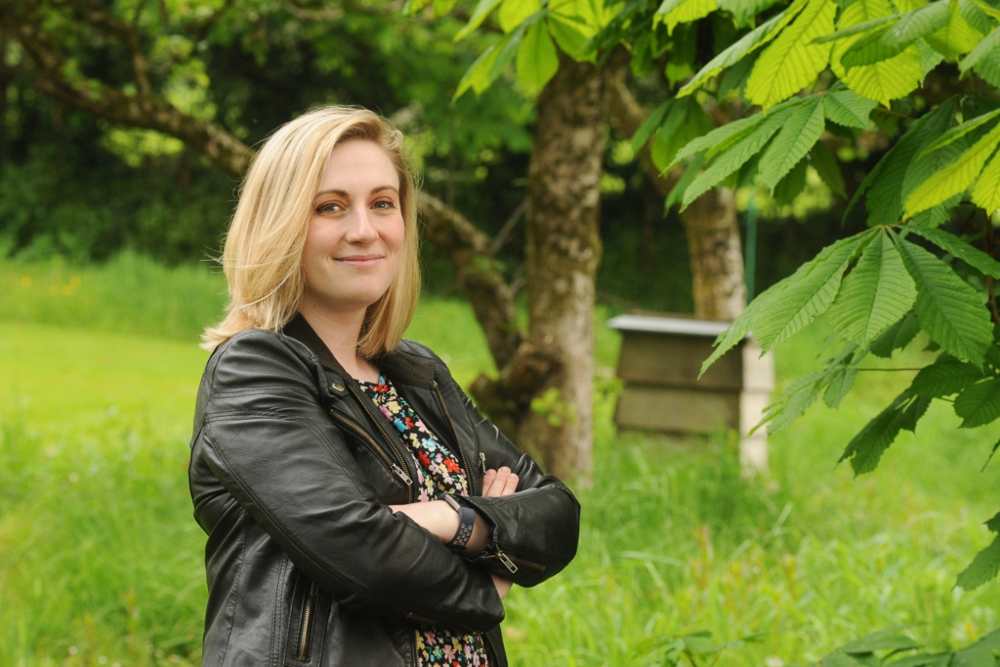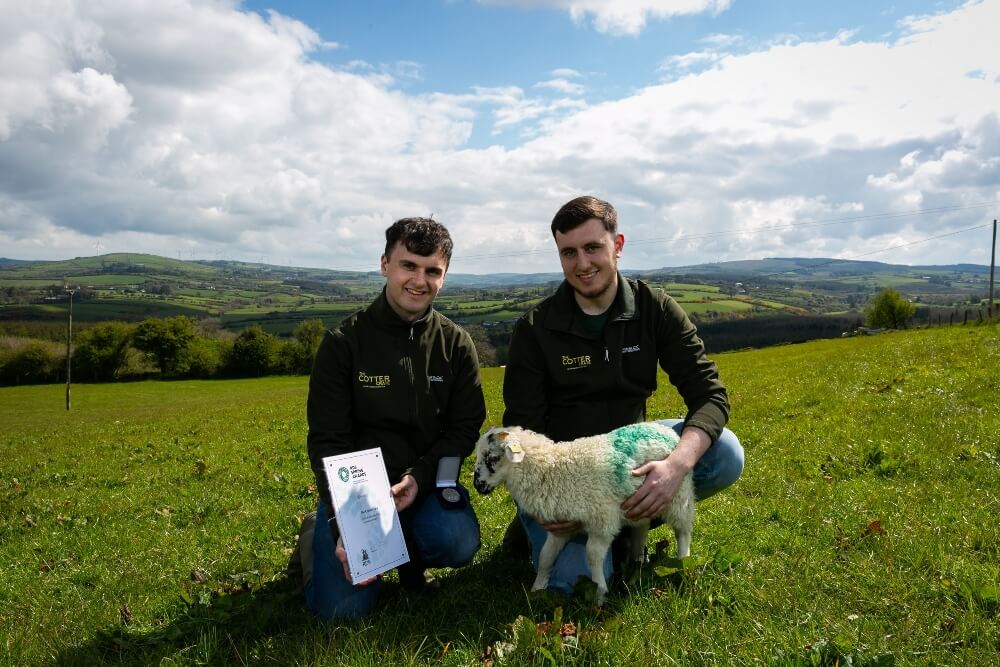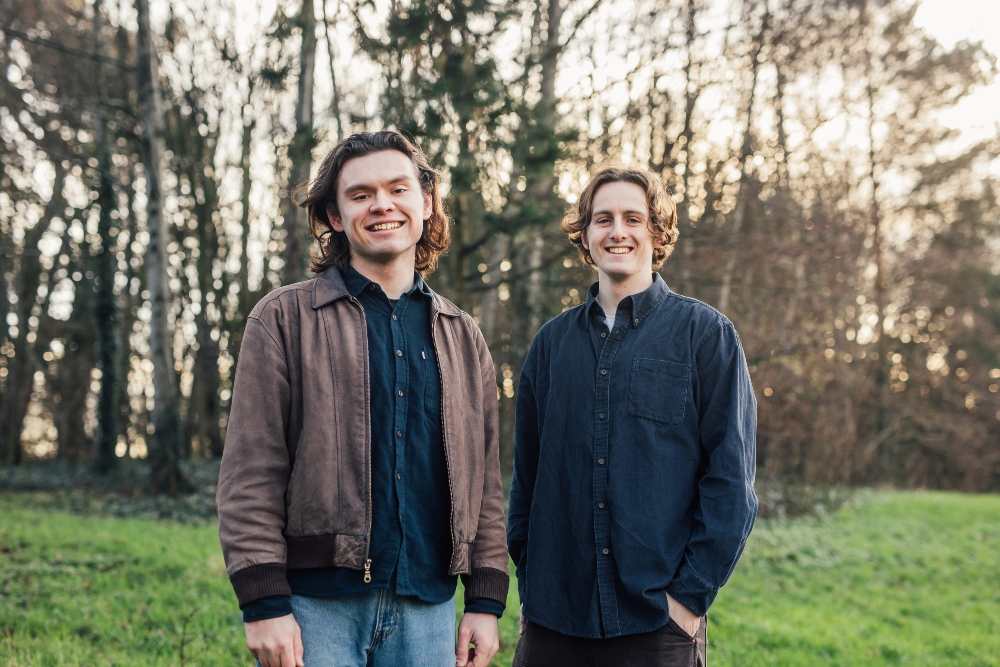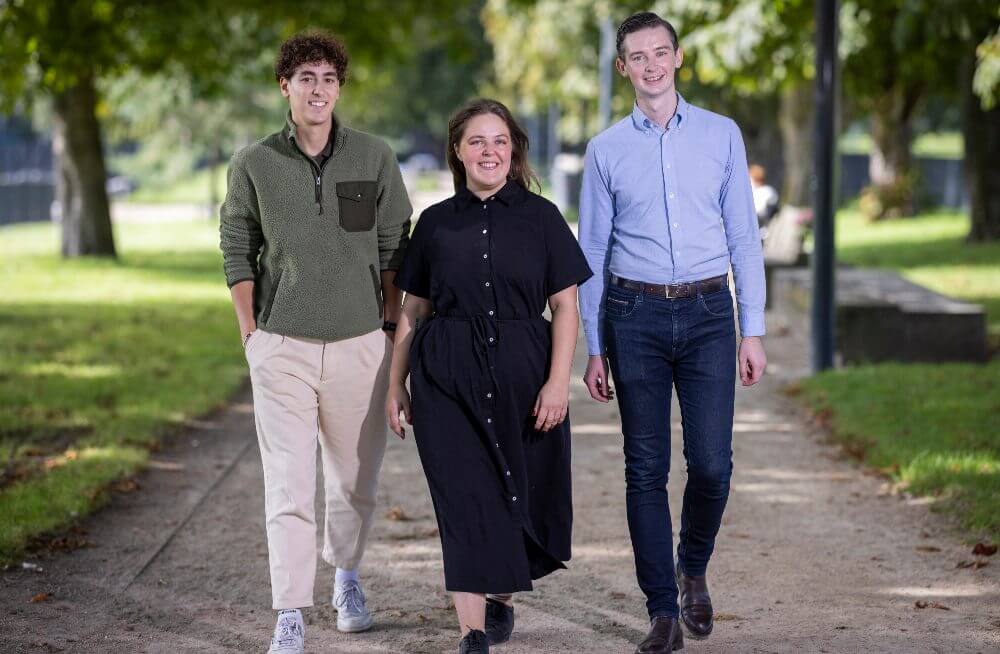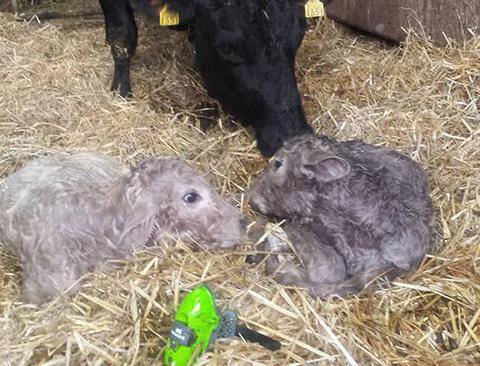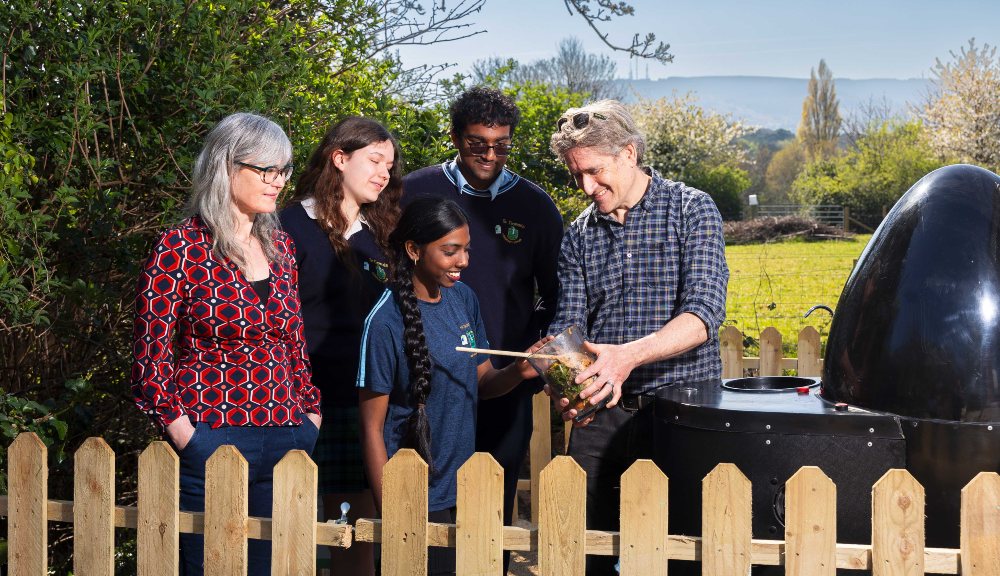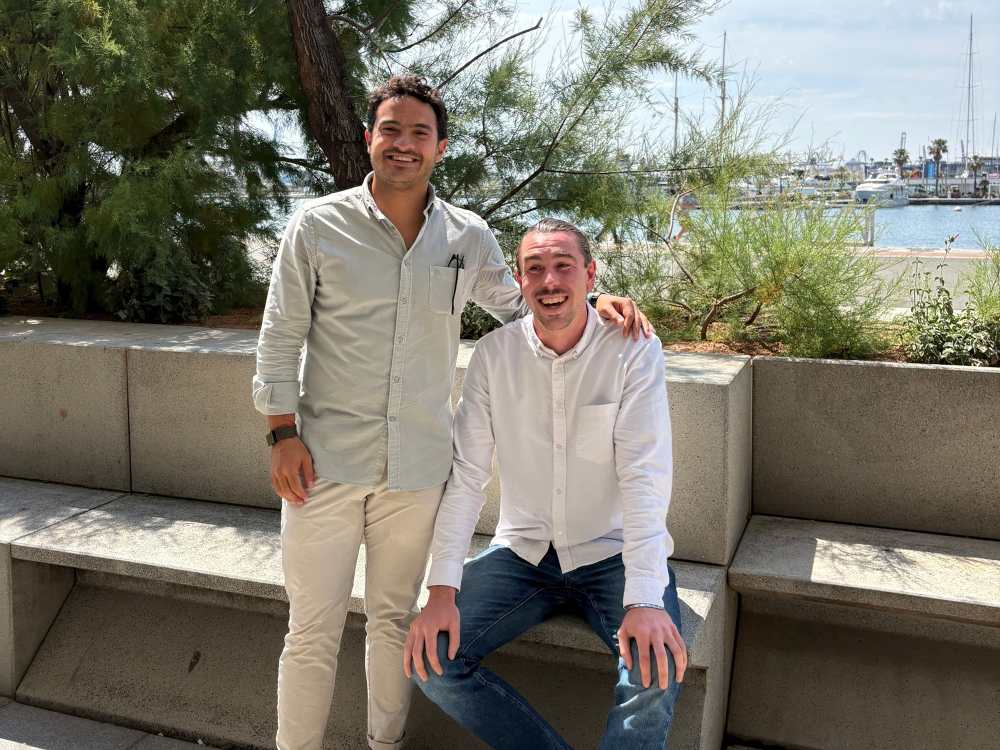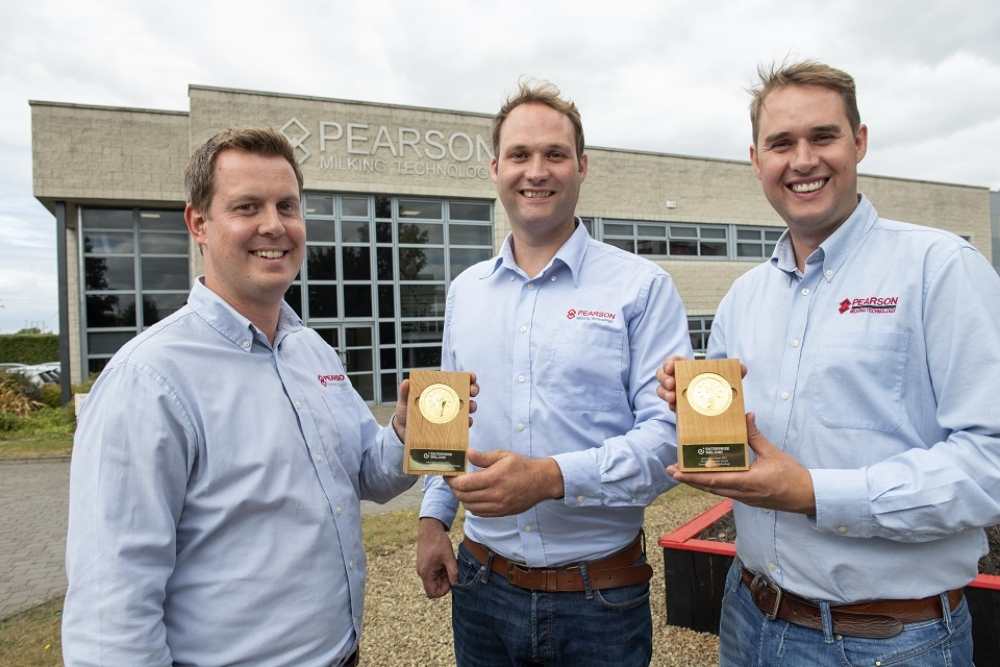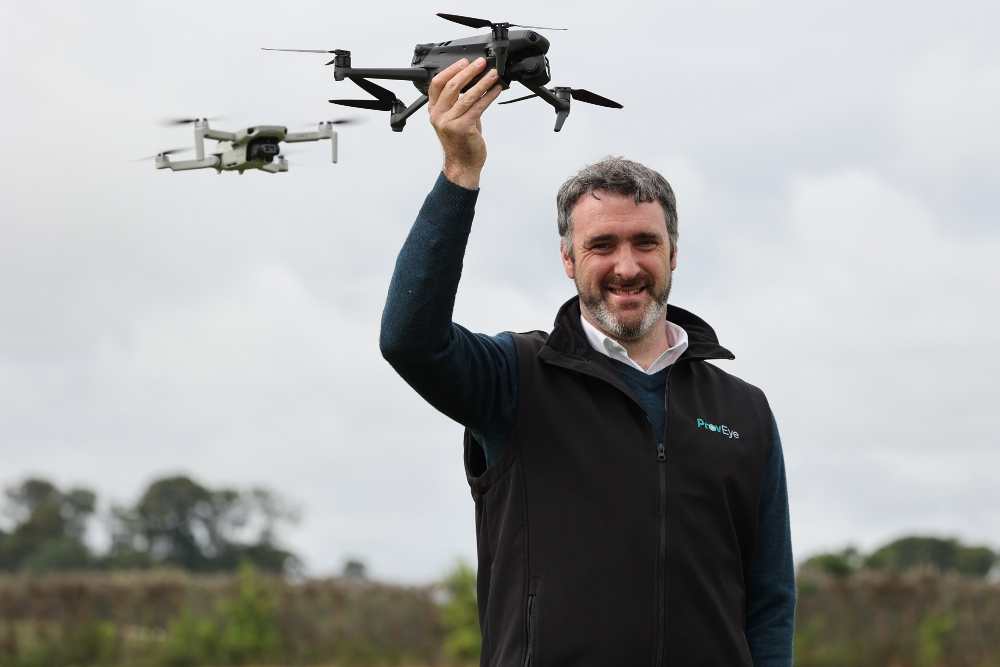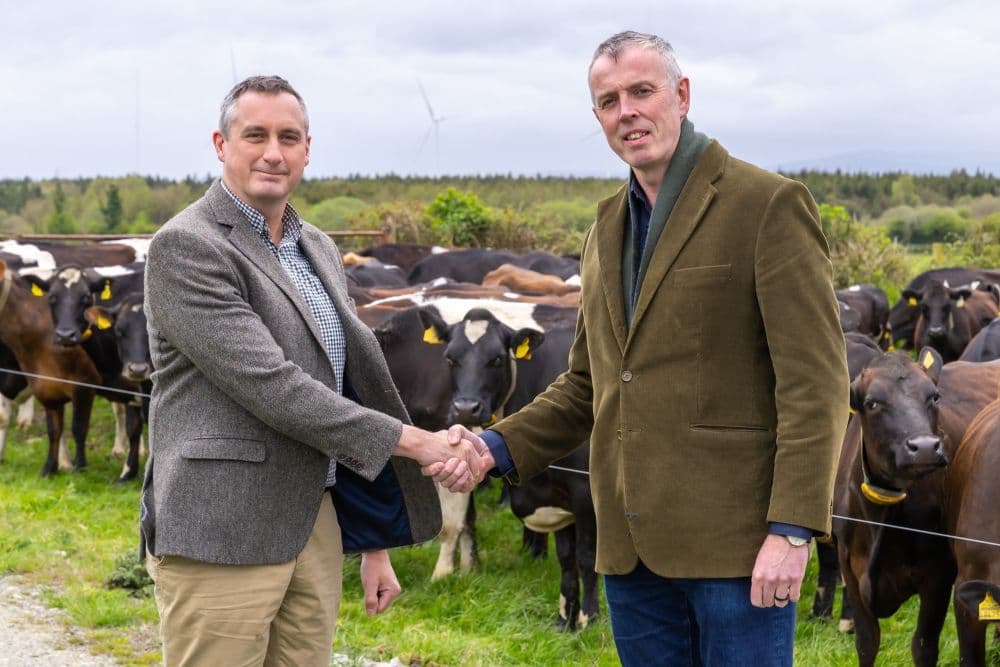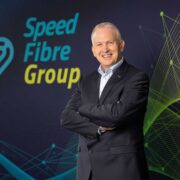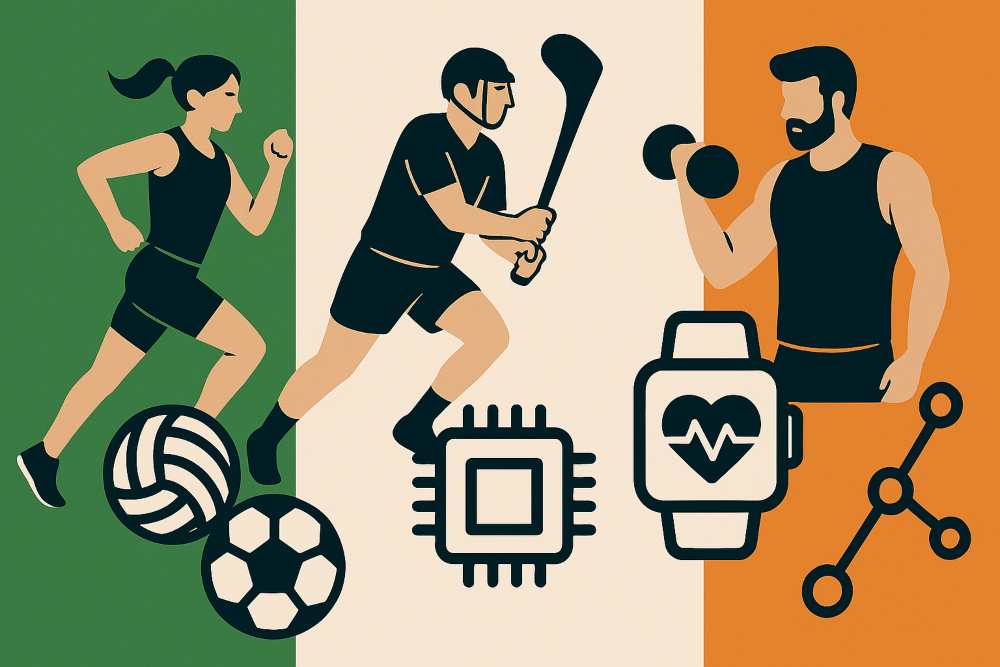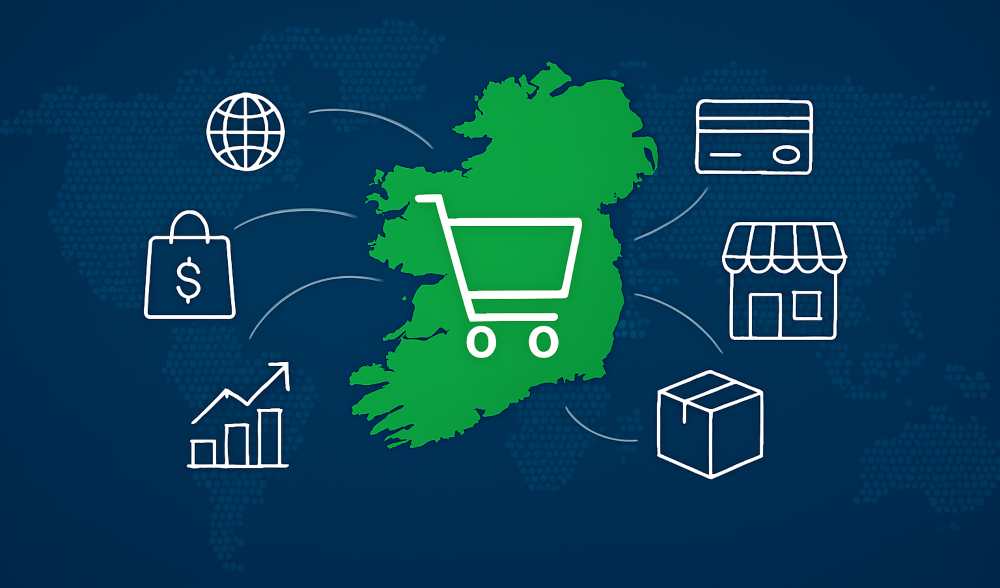Ireland’s agritech sector is undergoing a dynamic transformation, driven by a new generation of start-ups that blend deep agricultural insight with cutting-edge technology.
As global food systems face mounting pressure from climate change, biodiversity loss, and shifting consumer demands, Irish innovators are stepping up with solutions that promise greater sustainability, efficiency, and resilience.
From AI-powered diagnostics and robotic milking systems to satellite analytics and carbon sequestration technologies, these start-ups are redefining what’s possible in modern agriculture.
“The 2026 cohort of agritech disruptors reflects Ireland’s unique strengths: a rich farming heritage, world-class research institutions, and a growing ecosystem of accelerators and investors committed to agri-innovation”
Many of these companies are university spin-outs or alumni of programmes like AgTechUCD, NovaUCD, and Accelerate Green, which have become launchpads for high-impact ventures. Their technologies span the entire agri-food value chain – enhancing animal welfare, digitising supply chains, optimising transport logistics, and enabling climate-smart farming practices.
Whether tackling pollinator decline, improving livestock health, or transforming food waste into energy, these companies exemplify the ingenuity and ambition driving Ireland’s green transition.
Agricom.io
Agricom.io is a Cork-based agritech start-up founded by Nadim Al-Khoury and Georges Rattel, focused on digitising the agri-food supply chain to reduce waste and improve resilience against climate, economic, and environmental disruptions. The company’s mission is to modernise how agricultural products are tracked, processed, and distributed, using technology to enhance transparency, traceability, and sustainability across the entire value chain.
Agricom.io was selected for the AgTechUCD Accelerator Programme in 2022, a prestigious initiative hosted at UCD Lyons Farm and NovaUCD. This programme supports high-potential agri-food and vet-tech start-ups with tailored mentorship, market access, and investor engagement.
In terms of funding, Agricom.io has received non-equity assistance from two key backers: AgTechUCD and X2.0, a European innovation support programme. The most recent funding round was closed in August 2023, helping the company scale its platform and expand its market reach.
Agricom.io’s platform is designed to help producers and processors adapt to increasing regulatory pressures and consumer demand for sustainable food systems. By digitising supply chain operations, the company aims to reduce inefficiencies, prevent food loss, and enable better decision-making through data analytics.
Apis Protect
Apis Protect is a Cork-based agritech start-up founded by Dr Fiona Edwards Murphy, a UCC PhD graduate in electrical and electronic engineering. The company uses Internet of Things (IoT) and AI-powered sensors to monitor honeybee hives, helping beekeepers detect early signs of hive stress and improve colony health and productivity.
Edwards Murphy’s journey began during her doctoral research, where she applied wireless sensor networks to agricultural challenges. Her work led to the development of Apis Protect’s core technology, which collects temperature, CO₂, and movement data from inside hives. This data is analysed using machine learning to provide actionable insights, such as alerts for overheating, starvation, or queen issues.
Apis Protect raised €1.5 million in seed funding in November 2018. The round was led by Finistere Ventures and Atlantic Bridge Capital, with participation from Radicle Growth, The Yield Lab, and Enterprise Ireland. The funding supported international expansion, with sensors now deployed across 200 hives in the US, Ireland, the UK, and South Africa, monitoring over 10 million bees.
The company has received numerous accolades, including awards from IBM, IEEE, Google, and the Irish Research Council. Edwards Murphy was also named one of The Irish Times’ “50 people to watch” and won the Women Mean Business Sodexo Newcomer of the Year Award.
Apis Protect’s mission is critical: with bee populations declining due to climate change and disease, their technology offers a scalable solution to safeguard pollinators essential to global food production.
Cotter Agritech
Cotter Agritech is an Irish agritech start-up founded by brothers Nick and Jack Cotter from Abbeyfeale, County Limerick. The company specialises in targeted, selective treatment systems for sheep, aiming to reduce antiparasitic drug use and combat widespread resistance in livestock farming.
Nick Cotter, a University College Cork law and business student, gained international recognition by winning the 2022 Global Student Entrepreneur Awards, beating over 1,000 applicants from 40 countries. The company’s flagship product, SmartWorm, uses patented hardware and advanced algorithms to identify which animals actually require treatment, based on performance indicators like weight gain. This approach is grounded in the Pareto principle, which shows that 80% of parasites are typically found in just 20% of animals.
Cotter Agritech’s solution reduces drug use by up to 50%, lowering costs, improving biodiversity outcomes, and helping farmers transition away from blanket treatments. The company is currently focused on commercial sheep farmers in Ireland and the UK, with plans to expand to Australia, New Zealand, and other global markets.
In January 2022, Cotter Agritech raised a €10,000 seed round from The Yield Lab Europe, an agtech-focused investor. The funding supports further development of its technology and international scaling.
Cropsafe
Cropsafe is a Belfast-founded agritech start-up transforming farm management through satellite-powered analytics and real-time data interpretation.
Co-founded by John McElhone and Micheál McLaughlin, the company emerged from their personal experience growing up on Irish farms, where they witnessed firsthand the challenges farmers face in adopting digital tools. Initially bootstrapped during their school years to support local farms, Cropsafe has since evolved into a scalable platform that helps farmers monitor crop health, weather conditions, and field anomalies without needing to interpret complex datasets.
The platform integrates satellite imagery, global weather station data, and AI to deliver actionable insights directly to farmers, eliminating the need for spreadsheets or technical expertise. Cropsafe’s operating system allows users to set up alerts and modules tailored to their farm’s needs, enabling proactive decision-making and reducing crop loss.
In May 2022, Cropsafe raised $3 million in seed funding, led by Elefund, with participation from Foundation Capital, Global Founders Capital, V1.VC, and Great Oaks Capital. Notable angel investors included Cory Levy, Josh Browder, and Charlie Songhurst, former head of strategy at Microsoft. The funding supported the opening of a U.S. headquarters in Los Angeles and expansion of its engineering and product teams.
In 2025, co-founder John McElhone was awarded a Thiel Fellowship, receiving $100,000 in funding and mentorship from the Thiel Foundation, which supports young entrepreneurs building companies instead of attending college.
Dairy Robotics
Dairy Robotics is a Kildare-based agritech start-up founded in 2021 by Cormac McHugh, focused on solving key challenges in the dairy industry—namely animal welfare, labour shortages, and environmental pressures. The company designs and manufactures robotic milking systems and animal health monitoring devices, integrating advanced imaging and AI to support precision livestock management.
Its flagship product, Health-Eye, uses 2D and 3D cameras to assess cow body condition and mobility scores, enabling early detection of health risks. This system works in tandem with an Animal Health App, which tracks individual cow data, sends alerts for critical health events, and provides historical health analytics. The platform also includes RFID and 3D imaging technologies that integrate with broader farm management systems.
Dairy Robotics was selected for the AgTechUCD Accelerator Programme in October 2022, receiving non-equity assistance to support product development and market expansion. The programme helped the company refine its commercial strategy and connect with strategic partners across Ireland and internationally.
Headquartered in Athy, Co. Kildare, Dairy Robotics operates with a small team and is part of a growing ecosystem of Irish agtech innovators. Its solutions are designed to reduce manual labour, improve herd health outcomes, and support sustainable dairy production.
EquiTrace
EquiTrace is a Kildare-based equine health technology company founded in 2019 by Dr Jennifer Corley, Dr Kevin Corley, and Paul Hayton. The company was born out of the founders’ frustration with paper-based systems in veterinary practice and aims to digitise horse healthcare through a mobile-first platform that simplifies identification, medication tracking, and welfare management.
EquiTrace’s app works with any microchip scanner and smartphone, enabling vets and trainers to instantly access a horse’s medical records, GPS location, and treatment history. It also integrates with bio-thermo microchips for contactless temperature monitoring and serves as a digital passport for horses, streamlining compliance and traceability in an industry where animals frequently travel across borders.
In October 2021, EquiTrace raised €1.25 million in seed funding, with HBAN and Enterprise Ireland as lead investors. The funding supported product development and international expansion, including a strategic partnership with Merck Animal Health in the U.S. The company also launched an integration with the Horseracing Integrity and Safety Authority (HISA), helping racehorse trainers comply with new medication reporting regulations.
EquiTrace is based at the Irish National Stud and employs a growing team of 13. CEO Killian Gaffney, who joined in 2022, is leading the company’s expansion into the U.S., New Zealand, and Europe, with projected revenues of €3 million by 2026.
MagGrow
MagGrow is a Dublin-based agritech company founded in 2013 by Gary Wickham, alongside his brother Derek and David Moore. The company is pioneering magnetic spraying technology that dramatically reduces pesticide waste and environmental contamination. MagGrow’s system uses magnetic inserts to charge pesticide droplets, improving their adhesion to crops and reducing spray drift by over 80%.
The technology addresses a major issue in conventional spraying, where up to 70% of chemicals are lost due to drift, contaminating water sources and neighbouring fields. MagGrow’s solutions include retrofitted tractor boom kits, backpack sprayers for greenhouse and smallholder use, and a “spraying-as-a-service” model in regions like Ethiopia and Kenya. In trials, farmers have seen 300% yield increases, 50% reductions in pesticide use, and 67% water savings.
MagGrow has raised €6 million across five funding rounds, with backing from investors including Astanor Ventures, WakeUp Capital, SVG Ventures, and Bayer. The company operates across Europe, the US, Africa, and South America, with patented technology in 127 countries covering 85% of its addressable market.
Wickham, a seasoned entrepreneur with a background in pharmaceuticals and hospitality, envisions MagGrow as a global leader in sustainable agriculture. The company has won multiple awards, including recognition from the THRIVE Accelerator and the GCCA Cleantech Awards, and continues to explore applications in drone spraying, irrigation, and agronomic data services.
Micron Agritech
Micron Agritech, a spin-out from Technological University Dublin, is an Irish agritech start-up revolutionising animal health diagnostics through AI.
Founded in 2019 by Daniel Izquierdo, Tara McElligott, Sean Smith, and Jose Lopez while they were students, the company developed the Micron Kit, a portable, smartphone-compatible device that enables rapid, on-site parasite testing for livestock. This innovation addresses a critical issue in agriculture: the overuse of anti-parasitic treatments, which has led to rising medication resistance.
The Micron Kit delivers results in minutes, bypassing the traditional five-day lab turnaround. This empowers vets and farmers to make data-driven decisions, reducing unnecessary treatments and improving animal welfare and productivity. The company’s mission aligns with evolving EU regulations that restrict prophylactic antibiotic use in farming.
Micron Agritech has raised over €5 million to date. Its most recent funding round in September 2023 secured €2.7 million, co-led by ACT Venture Capital, Atlantic Bridge, and The Yield Lab Europe. Earlier funding included a €500,000 seed round in 2020 and a grant from Menai Science Park in 2021. The company is targeting expansion across Ireland and the UK, with ambitions to become the “LetsGetChecked of animal testing”.
MooCall
Moocall is a Dublin-based agritech company founded in 2014 by Emmet Savage, Niall Austin, and Michael Stanley. The company developed a non-invasive calving sensor that attaches to a cow’s tail and uses motion detection to alert farmers via SMS when a cow is about to give birth. The idea was born from Austin’s personal experience of losing a cow and calf during calving, prompting a search for a safer, more affordable alternative to invasive monitoring methods.
The Moocall sensor uses an algorithm to track tail movements and contractions, achieving 95% accuracy across breeds. It sends alerts approximately one hour before calving, helping farmers reduce losses and improve animal welfare. Since launch, Moocall has sold over 20,000 sensors in 36 countries, experiencing consistent double-digit monthly growth.
Moocall has raised funding through multiple rounds, including a €3.6 million investment led by Michael Smurfit in 2019. Other backers include Enterprise Ireland and The Pearse Lyons Accelerator, which supported early-stage development. The company has also won several design awards, including the Red Dot Award, the LAMMA Innovation Award, and the Irish Design Grand Prix.
In addition to the calving sensor, Moocall offers the Moocall HEAT Collar, which tracks bull-cow interactions to identify cows in heat, and the Breedmanager App, a herd management tool for farmers.
MyGug
MyGug is a Clonakilty, Co. Cork-based greentech start-up founded in 2021 by Fiona Kelleher and Kieran Coffey. The company has developed a micro-scale anaerobic digester that transforms food waste into renewable cooking gas and nutrient-rich fertiliser, offering a circular economy solution for homes, schools, and small food businesses.
The egg-shaped MyGug unit is designed and manufactured in Ireland and uses anaerobic digestion to convert up to 5.5kg of food waste into 20+ hours of cooking energy per week. It also produces a liquid fertiliser suitable for gardening and agriculture. The system is non-invasive, easy to install, and visually appealing, helping shift perceptions of food waste from burden to resource.
In March 2024, MyGug raised €900,000 in seed funding, led by Business Venture Partners (BVP) with participation from Enterprise Ireland. The funding is being used to scale operations, expand into the UK and Germany, and develop educational modules to accompany the technology. MyGug is also a High Potential Start-Up (HPSU) supported by Enterprise Ireland.
The company has installed units in educational institutions like Airfield Estate in Dublin, showcasing its impact on sustainability education and climate action. MyGug was also a winner in the Sustainability category at The Irish Times Innovation Awards, further validating its environmental and commercial potential.
ODOS
ODOS is a Dublin-based agri-climate technology start-up co-founded by Alejandro Vergara and Cian White, both former researchers from University College Dublin and Trinity College Dublin. The company is a university spin-out supported by the knowledge transfer teams at both institutions.
ODOS is focused on helping cooperatives and food companies measure, report, and verify their environmental impact in response to growing climate and regulatory pressures. Its platform simplifies data collection and provides actionable strategies that allow agri-food businesses to reduce emissions without compromising productivity. With agriculture responsible for nearly 15% of global greenhouse gas emissions, ODOS positions itself as a key enabler of climate action in the sectors.
In July 2025, ODOS closed a €680,000 funding round led by Capsa Food (Grupo Central Lechera Asturiana), with participation from TTAF by CLAVE and Angels, the investment arm of Juan Roig’s Marina de Empresas. The funding will support technological development and expansion into new European markets.
ODOS is currently supported by the Lanzadera accelerator in Valencia, Spain, and is already working with cooperatives and food companies across Europe. The company’s team of 11 people from nine nationalities reflects its global ambition and interdisciplinary approach.
CEO Alejandro Vergara describes ODOS’s mission as delivering “clarity, simplicity, and real results on the ground,” helping agri-food players comply and thrive in a changing climate landscape.
OptaHaul
OptaHaul is a Mullingar-based Irish agritech start-up founded in 2020 by Gary Gallagher, specialising in route optimisation software for the dairy transportation industry. The company’s SaaS platform is designed to help dairy processors, cooperatives, and hauliers reduce transport costs, improve resource efficiency, and cut greenhouse gas emissions from farm-to-plant milk logistics.
OptaHaul’s innovation addresses a long-standing gap in agri-transport technology, offering tailored algorithms that optimise milk collection routes based on real-time data, geography, and sustainability metrics. The platform is particularly relevant as the dairy sector faces increasing pressure to decarbonise operations and improve supply chain transparency.
In January 2023, OptaHaul secured a €10,000 pre-seed investment from AgTechUCD, following its recognition as the AgTech One to Watch 2023 at the AgTechUCD Innovation Centre accelerator programme. This followed earlier support from Accelerate Green in August 2022, and a previous pre-seed round in January 2020. The company has raised funding across three rounds, with backing from Zoosh Group, AgTechUCD, and Accelerate Green.
OptaHaul was one of 12 start-ups selected for the AgTechUCD accelerator, which supports early-stage agri-food ventures with global potential. The programme helped the company refine its commercial strategy and expand its visibility among investors and strategic partners.
Pearson Milking
Pearson Milking Technology is a family-owned agritech company based in Athy, Co. Kildare, with a legacy dating back to 1948. Founded by the Pearson family, the company has evolved into a leading manufacturer of milking parlours and robotic systems, serving dairy farms across Ireland and internationally.
Pearson Milking is known for combining traditional engineering excellence with cutting-edge innovation. Its flagship product, Bullseye, won the 2022 Enterprise Ireland Innovation Arena Award at the National Ploughing Championships. Bullseye uses automated visual inspection to assess Body Condition Scoring (BCS) in dairy cattle, helping farmers optimise breeding and milk production. The system frees up labour, improves herd health, and enhances farm efficiency.
The company operates with a team of 11–50 employees and maintains an active presence in the European Union and EMEA regions. While specific funding rounds are not publicly disclosed, Pearson Milking has received recognition and support through national innovation platforms and industry partnerships.
Pearson Milking continues to invest in robotic milking, data-driven herd management, and automated diagnostics, positioning itself as a key player in Ireland’s agri-tech ecosystem. Its commitment to sustainability and digitalisation reflects broader trends in modern agriculture, where efficiency and animal welfare are increasingly intertwined.
Proveye
Proveye is a Dublin-based agritech start-up revolutionising remote sensing for agriculture and environmental monitoring. Founded in 2022 by Jerome O’Connell and Professor Nick Holden as a University College Dublin (UCD) spin-out, the company is headquartered at NovaUCD and specialises in AI-powered image analysis from satellites, drones, and ground sensors.
Proveye’s platform enhances and integrates diverse imagery sources to deliver high-precision insights into crop health, grassland composition, carbon sequestration, and biodiversity. Its technology corrects for environmental noise—like sunlight and weather—making it possible to generate reliable metrics for decision-making at field, farm, and regional levels.
In January 2023, Proveye raised €1 million in seed funding, led by Inspire Investments and Enterprise Ireland, to accelerate product development and expand into Europe and North America. The company also secured two contracts with the European Space Agency (ESA)—a €225,000 grant in 2022 and a €900,000 contract in 2024—to support nature-based solutions for climate resilience and sustainable food production.
Proveye’s work is particularly focused on grasslands, which cover 54% of the Earth’s surface and store over 20% of soil carbon. Its platform empowers stakeholders—including farmers, carbon credit buyers, and natural capital investors—with trusted data to validate environmental impact and sustainability claims.
Senus
Eoin Lowry, head of Agri Sector, Bank of Ireland; and Brendan Allen, co-founder and managing director, Senus
Senus, formerly known as FarmEye, is an Irish environmental software company focused on advancing sustainable agriculture through digital innovation. Co-founded by Brendan Allen, and Eoghan Finneran, Senus has developed a platform that delivers Farm Environmental Health Reviews, offering farmers detailed assessments of their land’s environmental status.
In May 2025, Senus launched a pilot partnership with Bank of Ireland, enabling the bank’s agricultural customers to access these reviews. The initiative is designed to help farmers understand their environmental footprint, recognise existing sustainability efforts, and identify areas for improvement. The reviews generate bespoke action plans, aligning with Ireland’s broader push toward environmentally conscious farming.
Senus’s technology evaluates factors such as soil health, biodiversity, and carbon sequestration potential. This data-driven approach supports farmers in meeting evolving regulatory standards and accessing sustainability-linked financial products, such as Bank of Ireland’s Enviroflex loans, which are now available to over 95% of Irish dairy farmers.
The company’s rebrand from FarmEye to Senus reflects its expanded mission beyond soil testing to holistic environmental intelligence. While specific funding details are not publicly disclosed, the Bank of Ireland partnership signals strong institutional backing and market validation.
Senus is part of a growing wave of Irish agritech firms leveraging digital tools to support climate-smart agriculture. Its work not only empowers farmers but also contributes to Ireland’s national sustainability goals.
Silicate Carbon
Silicate was started in 2021 by Maurice Bryson and Professor Frank McDermott from UCD. The company is pioneering a novel approach to permanent carbon dioxide removal by repurposing crushed concrete to enhance soil and sequester atmospheric CO₂ over geological timescales.
Silicate’s process involves spreading finely ground surplus concrete on farmland, where it reacts with CO₂ in rainwater to form stable bicarbonate ions. This not only removes carbon from the atmosphere but also improves soil pH and crop productivity, offering dual benefits for climate and agriculture.
The company has raised funding through two rounds: a non-equity assistance grant from AgTechUCD in October 2022 and a grant round led by SVG Ventures in March 2023. Silicate was also named a top 20 finalist in the XPRIZE Carbon Removal competition, backed by Elon Musk’s Musk Foundation, highlighting its global potential in the carbon removal space.
StrongBó Agritech
StrongBó Agritech is a Galway-based start-up founded by Micheál McInerney, focused on transforming livestock management through automated animal weighing technology. The company’s innovation enables farmers to remotely monitor average daily weight gains of cattle, providing real-time insights that support better decision-making around feeding, health, and profitability.
StrongBó’s hardware is designed to operate in the field, allowing animals to be weighed without needing to be brought to a yard. This reduces labour costs, improves animal welfare, and ensures uninterrupted feeding, which can enhance weight gain. The system integrates with a business intelligence platform, giving farmers and advisors access to performance data and predictive analytics.
In June 2023, StrongBó raised €750,000 in seed funding to commercialise its technology. The round was led by Gallagher, a global leader in animal management solutions based in New Zealand, with additional investment from Enterprise Ireland (via the High Potential Start-Up programme), 519 Growth Fund, and the Grand River Agricultural Society in Canada.
Gallagher’s strategic investment reflects its interest in integrating remote weighing into its product suite, citing StrongBó’s potential to help farmers identify more feed-efficient animals and reduce greenhouse gas emissions. The partnership also opens doors for StrongBó’s international expansion.
McInerney, who designed the hardware in Ireland, founded StrongBó to address the lack of digital innovation in beef production. His vision is to bring precision livestock analytics to farms globally, helping producers manage growth, sustainability, and profitability with confidence.
TrojanTrack
TrojanTrack is a Kildare-based equine technology start-up founded in 2021 by Stephen O’Dwyer, a biomedical engineering graduate from University College Dublin. The company is headquartered at the Irish National Stud, where it develops AI-powered video analysis tools to detect early signs of lameness in horses, a major issue in racing and equestrian sports.
TrojanTrack’s system uses deep neural networks to extract data from 52 biomechanical points on a horse’s body during movement. This enables trainers and vets to establish a baseline for healthy motion and identify subtle deviations that may indicate injury risk. The technology is designed to be non-invasive, smartphone-compatible, and scalable across different equine disciplines.
The company has raised funding across two rounds, including a pre-seed investment from Enterprise Ireland in July 2022 and non-equity assistance from the AI Ecosystem Accelerator in May 2025. TrojanTrack was also selected for the UCD AI Accelerator Programme, delivered by NovaUCD and CeADAR, which supports high-potential Irish AI start-ups with mentorship, investor readiness, and technical guidance.
Founder Stephen O’Dwyer developed the idea after noticing frequent racehorse withdrawals due to injury and recognising the lack of objective injury analysis in the industry. His thesis on human movement using neural networks inspired the equine application.
TrojanTrack was a finalist in the Irish Times Innovation Awards, recognised for its potential to transform equine welfare through early detection and preventative care.
-
Bank of Ireland is welcoming new customers every day – funding investments, working capital and expansions across multiple sectors. To learn more, click here
-
For support in challenging times, click here
-
Listen to the ThinkBusiness Podcast for business insights and inspiration. All episodes are here. You can also listen to the Podcast on:
-
Spotify
-
SoundCloud
-
Apple

